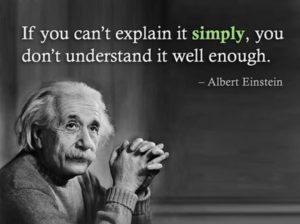I’m pretty sure most of us missed the Crusades … and know very little of medieval warfare.
W hile battle strategy in that era appears to be random and haphazard, certainly in most movies depicting that period, planning invariably eclipsed brute force. Strategy proved to be the touchpoint for success in every battle, including the ones we’re fighting every day.

Using a Battlefield Metaphor May Seem a Bit Strong …
… yet, it’s perfectly apt for the complexity … and yes, often the intensity … of what we’re facing every day.
But, this concept is not really about military conquest.
I use the reference more in the sense of this phrase:
“Civilians think about strategy. Generals think about logistics.”
D-Day Was Really ALL About Planning
Most of us weren’t around during World War II … but D-Day was the largest amphibious invasion of all time.
It involved over 250,000 troops and 15,000 ships landing along a 50-mile stretch of the Normandy coast on June 6, 1944.
Luck?
Accident? … or the result of rigorous strategic planning and project management?
Could this happen without planning?
[pullquote]“In preparing for battle I have always found that plans are useless, but planning is indispensable.” ~ Dwight D. Eisenhower, (Our 34th President)[/pullquote]
Did General Eisenhower, the Allied Supreme Commander, lead this effort without any planning?
Of course not, and even if our business plans aren’t quite as extensive, we know (deep down, we know for sure) that we need some sort of an organized planning process to build a successful business.
We need to make sure that everyone’s headed in the same direction … that we don’t ignore the obstacles or overlook the great opportunities on the road ahead … or don’t squander valuable resources chasing rainbows.
Do I really have to plan to have a successful business?
I find myself using General Eisenhower’s phrase repeatedly for at least two reasons … first, because it’s absolutely true … and second, it reflects the view of most executives about plans … they’re useless!
Most of us get that rumbling feeling in our stomachs when we think about the planning process.
A lot of that comes from past experiences with ponderous, tedious, painful planning processes that wasted a lot of time … and worst of all, were never implemented.
 Don’t like the Military Reference? How about this?
Don’t like the Military Reference? How about this?
Can you imagine building a building without an architect?
Would you like to conduct an orchestra without a score?
Would you send your team onto the field with an empty playbook?
Would it be awesome to have your surgeon start on you without a clue about what she’s going to do?
We plan to meet … then meet to plan … but there’s no plan!
I remember meeting with a senior executive at a client’s office recently who surprised me when she told me they held an annual strategic planning every year.
They brought in all of the troops from different parts of the country and reviewed their plans and ideas for the next 12 months.
I was rather stunned to hear this because the CEO earlier told me they had no plan, which was why I was there. So, I probed a little more with this executive to learn about her experience and what came out of it each year.
“Oh, nothing”, she said. “We never did anything with it. We spent most of our time reviewing what we said the previous year and wondering why nothing happened with it!”
Ideas are not plans … and plans are not a complete strategy
A little history lesson reminds us that an awful lot went wrong on D-Day, and even more thereafter … yet, the Allies were ultimately successful.
Without a resilient plan that was continually modified and updated as circumstances changed … the Allies would have failed and we would have faced a cluster of truly global proportions.
Does Jabberwocky help? Brainstorming? Strategery?
So, what shall we call this miserable planning business?
Jabberwocky?
Brainstorming?
My favorite is Strategery? Whatever works to make planning more accessible and less intimidating is what you should use.
Make up a name … create an iconic character … do anything to make it an energetic, fun and invigorating process that puts the company in the driver’s seat to achieve success.
Four Inviolable Reasons You Need to Do that Hated Planning
1. You’ve got to have a target at which to aim … and you’ve got to find some way to separate the crappy ideas from the good ones.
2. You’ve got limited resources, so you can’t go after everything.
3. You need to apply consistent criteria to every idea and opportunity so you don’t choose something that you’re good at but that everyone else is already doing. (Worse might be that you cleverly choose something that no one else is doing … but you don’t know the first thing about it.)
4. Without a few strategic choices that differentiate us from everyone else, we’ll eventually have to start over.
With limited resources, you can’t afford to screw this up
That’s it in a nutshell.
Relying on gut instinct or picking favorites only works if you have unlimited resources and can squander them without consequence.
Sadly, that’s not the ship most of us are steering.
It’s a cliché, but we’ve got to “get the biggest bang for our buck”.
We know that the benefits of some of these initiatives will not come quickly.
So, in addition to focusing our limited financial resources, we need to avoid chasing rainbows so we don’t also invest a bunch of time only to discover that it was wasted effort and we have to start over.
Do I need a consultant to tackle this?
About now, some of you are saying … “yeah, yeah, you consultants are always trying to sell some big strategic planning project”.
Not at all, my friend.
This does NOT take a big planning project, an Ivy League MBA or the GE auditorium.
It does take some dedicated time to evaluate the opportunities available to build your business.
To do that effectively, you do need to use consistent criteria … but you can get it done yourself if you devote the time to it.
At the same time, don’t avoid getting outside help if you need it because the cost of not doing it all … is far greater than the investment to get it done right.
Above all … DO IT!
Question: What’s your most recent experience with a planning process?



